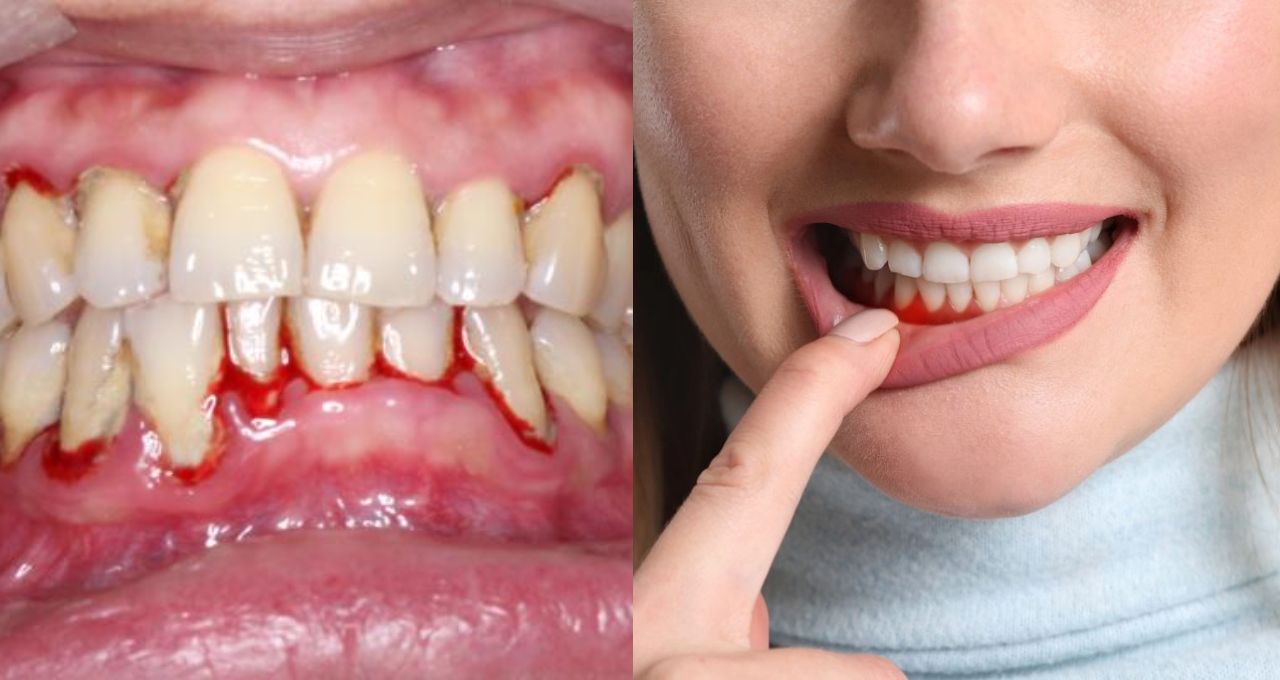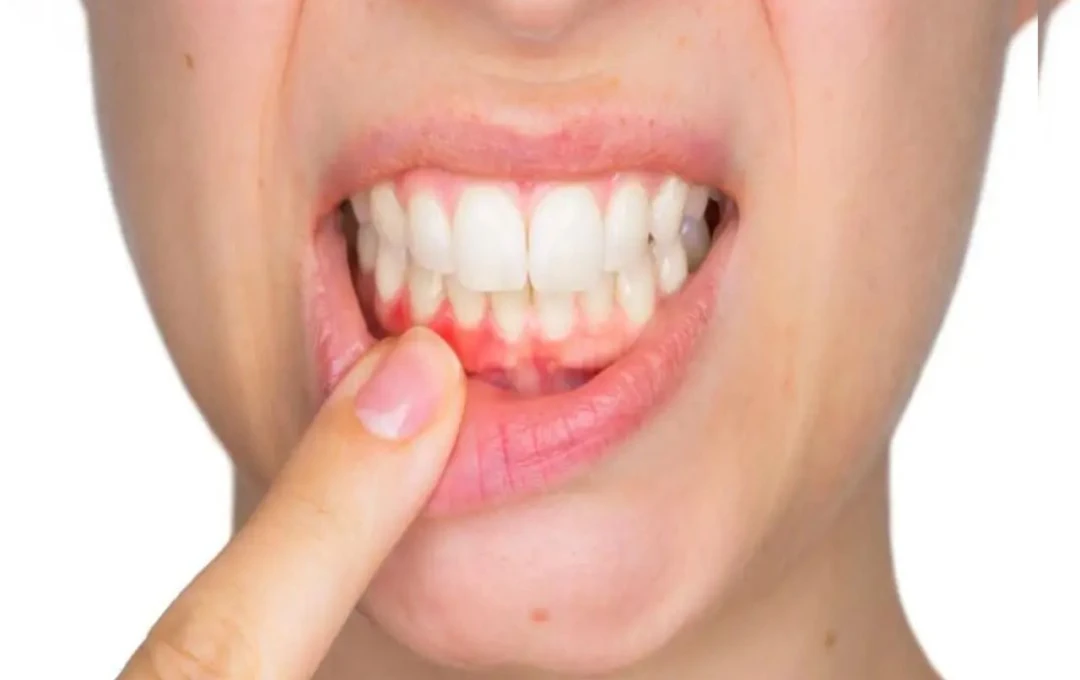If you experience bleeding gums while brushing your teeth daily, ignoring it could be detrimental to your health. Many people disregard this as a normal occurrence, but it can be a sign of a deeper, more serious underlying health issue.
This problem isn't limited to the gums; it can impact the body's immune system, heart, bones, and overall health. Let's explore four serious illnesses that bleeding gums while brushing might be linked to:
1. Gingivitis: Gum Inflammation and Infection
Bleeding gums are most commonly the first symptom of a condition called gingivitis. This is an early-stage gum infection caused by plaque and bacteria buildup on the teeth. When you brush, this plaque damages the gums, causing inflammation and bleeding.
Symptoms
- Bleeding while brushing
- Redness and swelling of the gums
- Mild burning or itching
- Bad breath
If left untreated, gingivitis can progress and develop into the next stage, periodontitis.
2. Periodontitis: A Disease Reaching the Bones
Neglecting gingivitis can lead to periodontitis. This is not merely a gum problem; it can affect your jawbone. In this condition, bacteria reach deep into the gums, damaging the tooth roots.
Symptoms
- Persistent bleeding gums
- Strong bad breath
- Loose or wobbly teeth
- Gum recession
Periodontitis's effects are not limited to teeth; it can also contribute to heart disease, diabetes, and premature delivery. Therefore, if bleeding gums persist, consult a dentist.

3. Vitamin Deficiency: A Sign of Nutritional Imbalance
Bleeding gums aren't always solely due to oral health problems; they can also indicate a deficiency in essential nutrients. Specifically, deficiencies in Vitamin C and Vitamin K weaken the gums.
Vitamin C Deficiency
- Associated with scurvy.
- Reduces tissue repair and immunity.
- Weakens gums, making them prone to bleeding.
Vitamin K Deficiency
- Helps in blood clotting.
- Deficiency leads to bleeding from even minor injuries or brushing.
Solutions
- Include amla, oranges, lemons, green leafy vegetables, and lentils in your diet.
- Get regular blood tests to check your nutrient levels.
4. Hormonal Changes: A Crucial Aspect of Women's Health
In women, hormonal fluctuations can sometimes affect oral health. Changes in hormones like estrogen and progesterone during pregnancy, menstruation, or menopause make gums more sensitive.
Symptoms
- Bleeding gums while brushing
- Mild burning or swelling of the gums
- A throbbing sensation near the teeth
Experts say this condition is temporary, but ignoring it isn't advisable. Pregnant women, in particular, should regularly check their oral health.
Bleeding Gums: When to See a Doctor?
If you experience the following symptoms frequently, contact a dental or medical professional immediately:
- Bleeding every time you brush or floss
- Persistent gum swelling
- Severe bad breath
- Loose teeth
- Difficulty or pain while eating

How to Care for Your Gums: Essential Measures
- Practice regular dental hygiene – brush twice daily and floss 3-4 times a week.
- Use a soft-bristled toothbrush – hard brushes can damage gums.
- Use mouthwash – antiseptic mouthwash can eliminate bacteria.
- Maintain a healthy diet – a diet rich in vitamins and minerals keeps gums b.
- Get regular dental checkups – a checkup every six months is ideal.
Bleeding gums may seem like a minor and common problem, but serious illnesses can be hidden behind it. Every part of the body, especially teeth and gums, indicates your overall health. Addressing this issue promptly ensures not only healthy teeth but also overall well-being.












